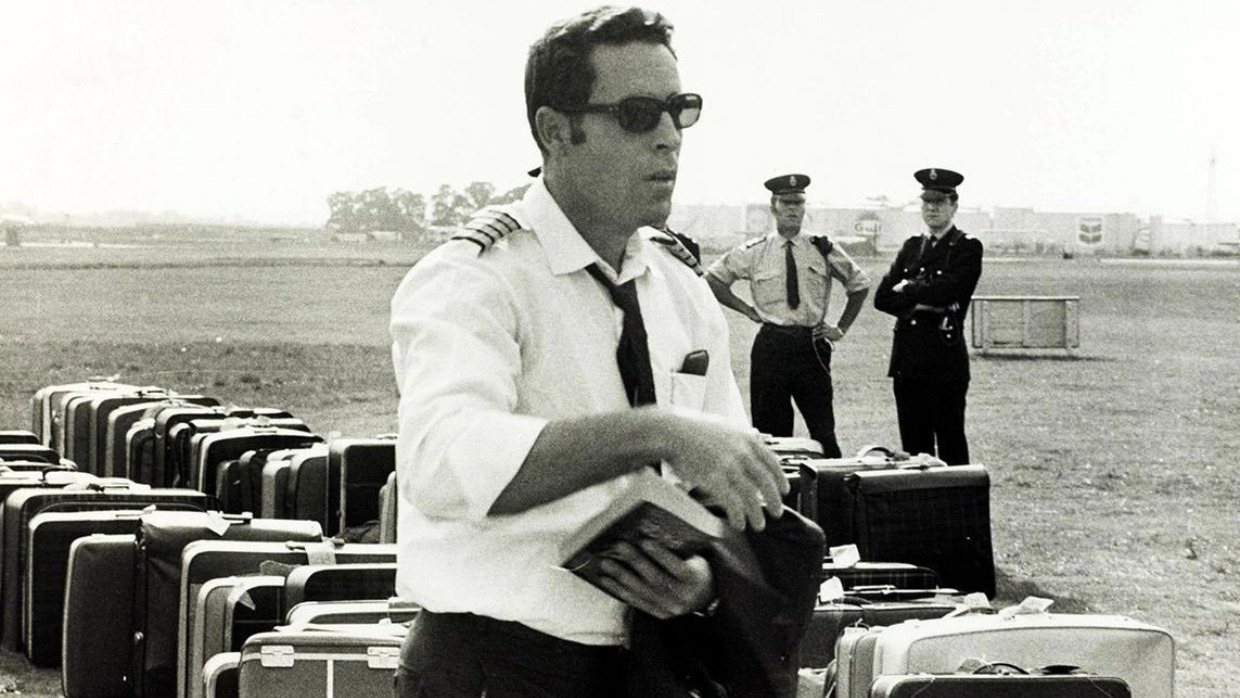 An Open Letter to University Presidents
An Open Letter to University Presidents


5 min read
Captain Uri Bar-Lev, the pilot, was supposed to give into hijackers’ demands. He had something else in mind.
On September 6, 1970, Captain Uri Bar-Lev was preparing to pilot an El Al plane full of passengers from Amsterdam to New York. It was the second leg of a trip that started in Tel Aviv.
Just before takeoff, a security officer at Schiphol airport told him that there were four passengers who seemed suspicious: two had Senegalese passports that contained consecutive numbers, and the other two had Honduran passports. All of these passengers booked their tickets right before the flight.
Bar-Lev made sure the Senegalese passengers couldn’t board, and asked for a thorough security check of the other two passengers – but, unbeknownst to him, it never happened.
He thought that when the “Hondurans” boarded the plane that they were cleared. But just to be safe, he asked a security officer, Avihu Kol, to accompany him to the cockpit instead of sitting in first class. There had been many hijackings on different flights lately, and Bar-Lev didn’t want to take any chances. El Al was the only airline to have security officers on their planes; this rule was instated after an El Al flight to Algeria had been hijacked in 1968.
 Uri Bar-Lev (right), flight attendant Janet Darmijan and senior flight attendant Abraham Eizenov speak to the media on their safe return to Israel, September 1970 (photo credit: Courtesy El Al archive)
Uri Bar-Lev (right), flight attendant Janet Darmijan and senior flight attendant Abraham Eizenov speak to the media on their safe return to Israel, September 1970 (photo credit: Courtesy El Al archive)
As the flight was climbing at 29,000 feet, the emergency light went on in the cockpit. Bar-Lev knew right away that the plane was being hijacked and that the “Hondurans” were responsible.
A flight attendant announced on the intercom that two people with guns and grenades wanted to get into the cockpit, and if they couldn’t, they would kill everyone on board. When flight engineer Uri Zach looked through the peephole, he saw a hijacker holding a gun to a flight attendant’s head.
The hijacker was Patrick Argüello, who was part of the Popular Front for the Liberation of Palestine and a Nicaraguan-American Sandinista supporter. The flight attendant said Argüello was going to kill her if Bar-Lev didn’t open up the cockpit and let him and the other hijacker inside, Leila Khaled.
Bar-Lev had to think quickly. El Al had trained its pilots to give into the hijackers’ demands instead of trying to be a “hero.” A crewmember urged Bar-Lev to let the hijackers in.
 Palestinian terrorist Leila Khaled (L), Captain Bar-Lev (R)
Palestinian terrorist Leila Khaled (L), Captain Bar-Lev (R)
But Bar-Lev, who was a teenaged pilot in the 1948 War for Independence and served in the 1956 war, knew he couldn’t do that. If he did, they might kill everyone on board. He announced: “They will not hijack my plane.”
He then made a move like the “Split S” combat maneuver used during World War II, initiating a nose dive. This would knock the hijackers off their feet and protect the passengers who were strapped in. This dive would also ensure that a grenade explosion or bullet would not be as dangerous. The plane dove 10,000 feet in just one minute. The hijackers were thrown to the ground. When Bar-Lev completed the dive, Kol quickly killed Argüello.
Leila Khaled, a Palestinian who had hijacked other planes, rolled out a grenade down the aisle but it didn’t go off. She passed out and was arrested by British authorities. (She was released a month later in exchange for hostages who were taken in another hijacking.) The whole incident happened in two and a half minutes.
“They will not hijack my plane.”
Bar-Lev found out that Shlomo Vider, who was the head flight attendant, had been shot twice after trying to take down Argüello. If he didn’t get medical help soon, a doctor on board said, he could die. Though El Al demanded that Bar-Lev return to Tel Aviv, he knew that Vider would die if they flew five hours back to Israel. So he decided to land in Heathrow in London, which was only 20 minutes away.
Doing this saved Vider’s life. Everyone on board was safe, and Khaled was given over to the authorities.
But story doesn’t end there.
At first, Bar-Lev was not seen as a hero. In fact, he was in huge trouble: the authorities demanded that El Al fire the pilot, and 40% of pilots wanted him to resign, too.
Bar-Lev felt betrayed. He had saved a plane full of passengers and brought a hijacker to justice, and his country wasn’t standing up for him. They should have been celebrating him, but instead they were treating him like he’d done something wrong.
Bar-Lev arranged a meeting with Golda Meir, who was the prime minister at the time. It wasn’t revealed what was said, but a week after this meeting, he was back up in the air, flying once again.
History has been kind to Bar-Lev, now in his 90s and still living in Israel. He was the only pilot ever to stop an in-air hijacking and is seen as a hero in Israel and around the world.
In an interview with one of the surviving passengers in The Forward, Bar-Lev said he acted the way he did because pilots are supposed to “look out for the welfare of their passengers.”
Bar-Lev may not have done what he was supposed to, but because he bent the rules and went with his gut instinct, he saved countless lives and became an international hero in the process.
